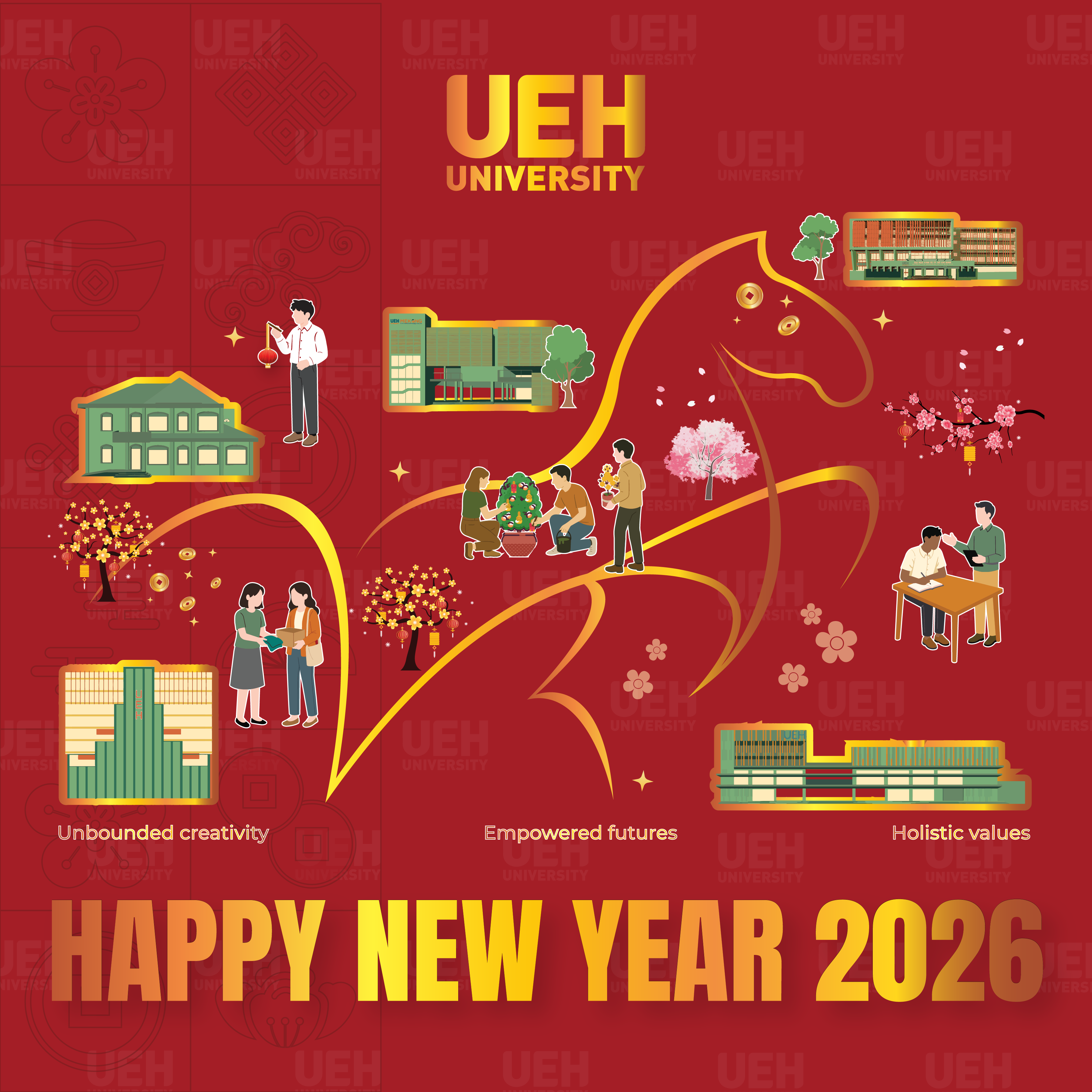
UEH jointly organizing Regional Training on Water Resources Management in Climate and Socioeconomic Change Adaptation context in Southeast Asian Transboundary Basins
03 Nov, 2021
This October, Economy and Environment Partnership for Southeast Asia (EEPSEA), Environment for Development (EfD-Vietnam), under the collaboration from University of Economics Ho Chi Minh City (UEH) and International Institute for Applied Systems Analysis (IIASA) holding a training program on “Water Resources Management: Socioeconomic and Climate Change Adaptation in Transboundary Basins”. This 3-day program was held on October 12th, 14th, and 21st 2021, including water management modeling theories and practices in the climate change context. Simultaneously, the participation of 31 various-field learners from Cambodia, Indonesia, Lao PDR, Myanmar, The Philippines, Thailand, and Vietnam was also recognized.
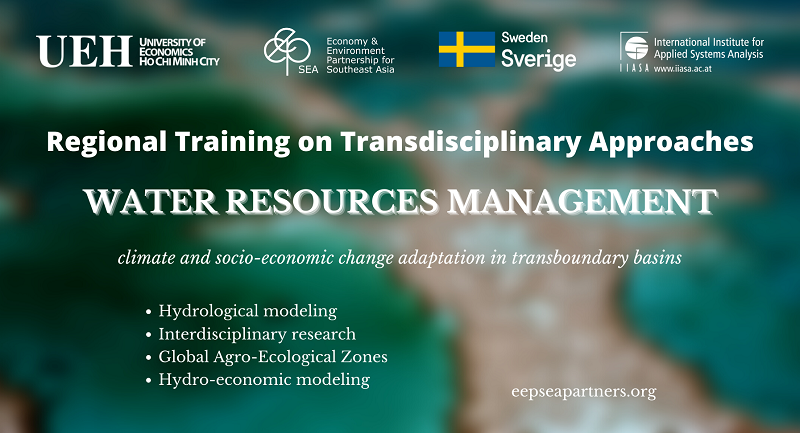
At the beginning of the seminar, representatives from EEPSEA, EfD-Vietnam, IIASA, and World Meteorological Organization (WMO) were introduced. On the 1st day, the program focused mainly on theories and models. Dr. Peter Burek, Mikhail Smilovic and Luca Guillaumot (IIASA) presented Community Water Model (CWatM) developed by IIASA, possibly modeling major hydrological processes, comprising hydrological features of a water region, construction, water demand and human-basin interaction.
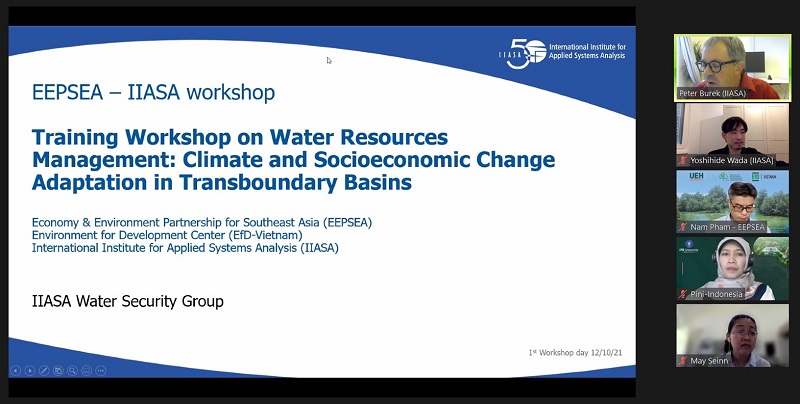 Dr. Peter Burek (IIASA) and Dr. Pham Khanh Nam (EEPSEA, UEH) introducing the course
Dr. Peter Burek (IIASA) and Dr. Pham Khanh Nam (EEPSEA, UEH) introducing the course
Python Open-source Code Model can be utilized freely worldwide. Dr. Burek briefly offered some tutorials on CWatM Software to comprehend this tool; after that, participants were assigned to smaller groups for software trial.
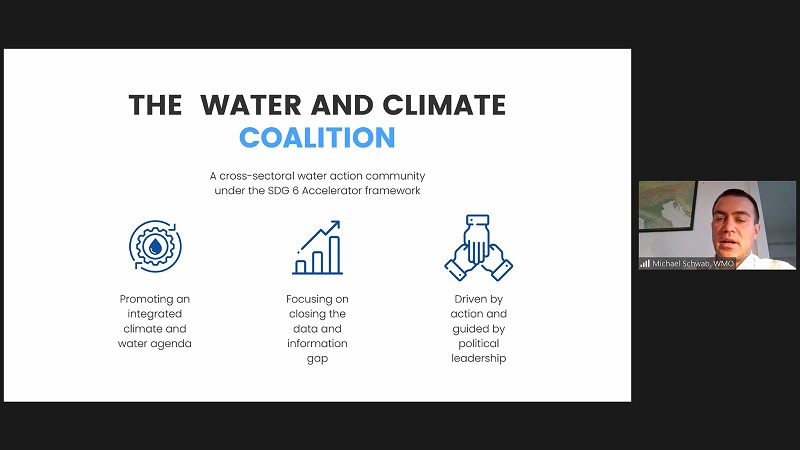 Dr. Michael Schwab (WMO) illustrating the coalition role of water and climate resources
Dr. Michael Schwab (WMO) illustrating the coalition role of water and climate resources
During the tutorial and experiment process, Dr. Taher Kahil (IIASA) addressed the economic aspect of water resources management through hydro-economic modeling. One urgent water management issue was how the community determined optimal water allocation to users, places and periods. Two basin-level modeling methods launched in this training included Dynamic System (simulation) and Hydro-economics (model optimization), in which, latter method was centrally analyzed more in this program.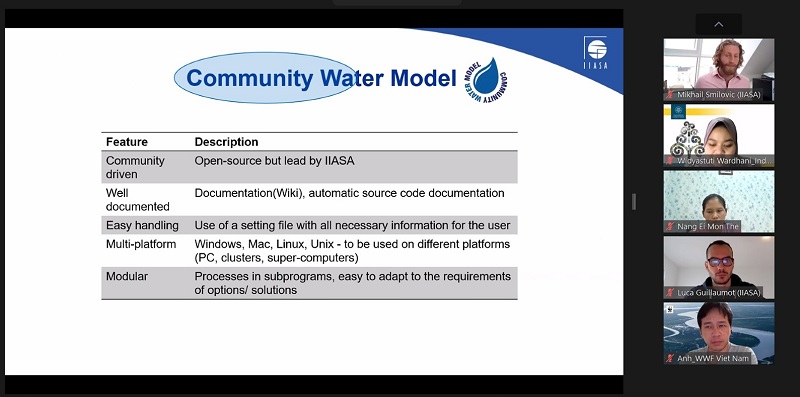 Community Water Model using open-source code
Community Water Model using open-source code
Global Hydro-economics Model was manipulated to optimize economic objectives under basins’ physical, technical and institutional constraints. Continuing the training, Dr. Reetik-Kumar Sahu (IIASA) briefed on General Algebraic Modeling System (GAMS) for hydro-economics. Dr. Sahu specifically instructed on how to instal and initialize GAMS Software besides introducing four examples of the model’s operation and result analysis.
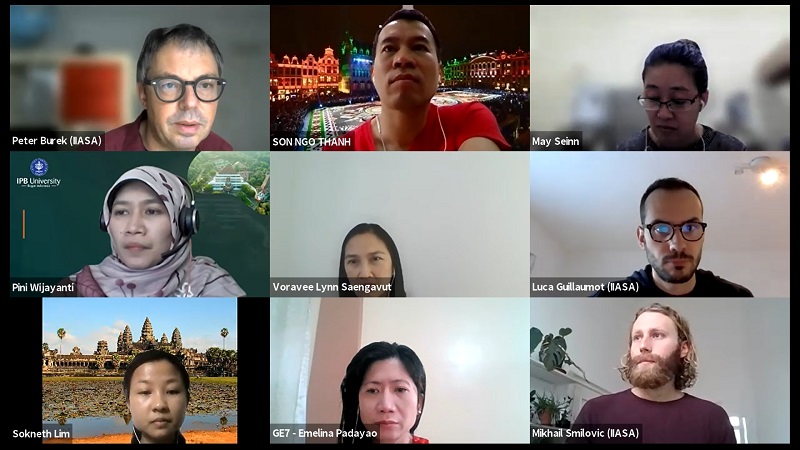 Training attendees from numerous specializations and Southeast Asian regional countries
Training attendees from numerous specializations and Southeast Asian regional countries
On 2nd and 3rd days, trainers approached water management tools containing CWatM, ECHO-GAMS, and Global Agro-Ecological Zones (GAEZ). The learners were appointed to smaller groups with instructors to run the model and work through in-course assignments. The guidance was designed to promote instructor-attendee discussions and interactions so that all particpants could gain realistic tool-applying experience. IIASA experts, as requested, deeply piloted how to control distinct basin models in Vietnam, Thailand, The Philippines and Cambodia.
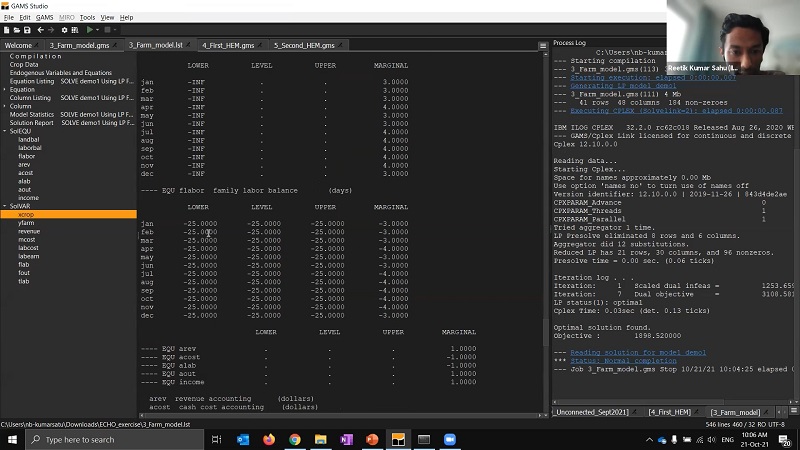 Practice with hydro-economics model and simulating on computer
Practice with hydro-economics model and simulating on computer
Despite online format, this program was deeply interconnected and technically. The fact that a variety of trainees expressed their interests and researched IIASA’s water management models achieves gadget-related practical skills.
Dr. Pham Khanh Nam (Director of EEPSEA and EfD-Vietnam) remarked as follows: “The training program laid the initial foundation for a transdisciplinary and transboundary community water management research stream in the climate change context. With program-collected skills, the participants were carefully equipped with extra preparation to join in water management policy planning proceedings in their community.”
Further information related to the seminar is here.
News, photos: The Economy and Environment Partnership for Southeast Asia

